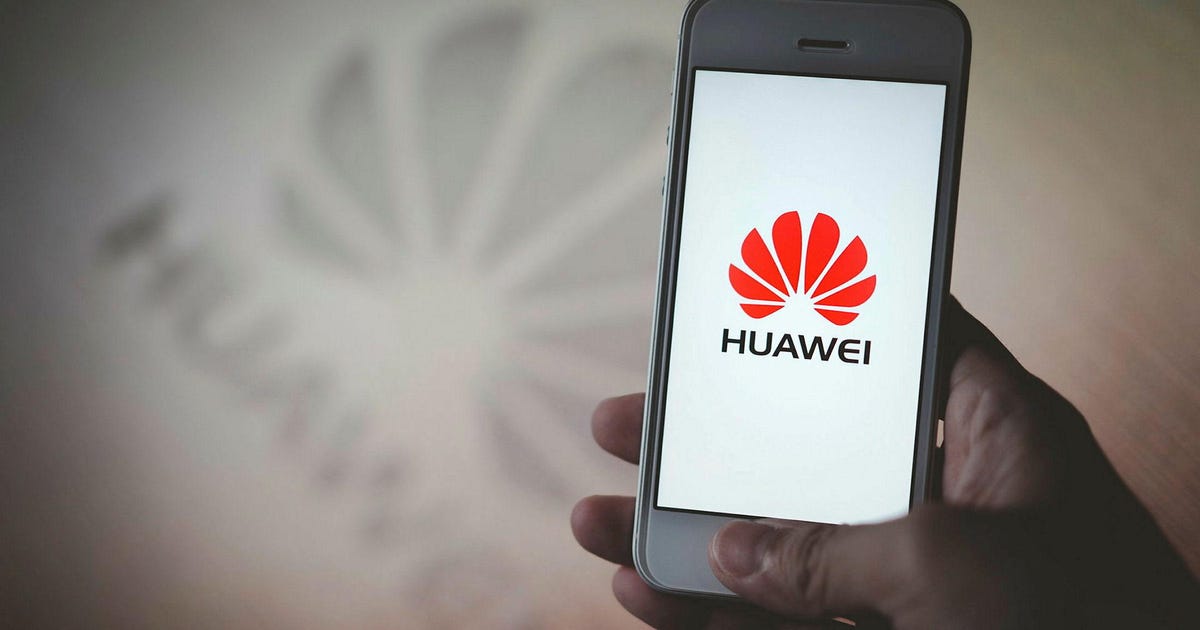

Chinese tech giant Huawei is actively recruiting Israeli software engineers with expertise in exploit research – the practice of identifying weaknesses in digital systems – and offensive cyber capabilities.
While the jobs advertised are officially for defensive cybersecurity roles, Huawei’s push to attract top talent from the Israeli cyber industry, many of whom have served in elite IDF cyber units, has drawn sharp criticism.
Cyber and intelligence experts who spoke to Haaretz warned that sensitive know-how could ultimately reach China through the Chinese corporation.
Huawei is under U.S. sanctions due to its alleged ties to the Chinese government and intelligence agencies. Israeli experts say even if such know-how is used only for defensive purposes in China, it could eventually be shared with Iran, given the two countries’ close defense cooperation.
A telecommunications giant, Huawei produces phones and tablets, develops digital and physical infrastructure and, in recent years, has expanded into artificial intelligence and operating systems.
Under U.S. sanctions, American firms and citizens are barred from working with Huawei or supplying it with technology. Americans may not work for Huawei in any capacity – even as external consultants or freelancers – and U.S. companies are prohibited from providing products or services to the company or any of its subsidiaries, including in the field of cybersecurity.
Despite these restrictions, Huawei operates globally, with a large R&D center in India and a growing presence in several European capitals and across the Middle East. In Israel, it employs several hundred people at offices in Haifa and Hod Hasharon through its local subsidiary, Toga Networks. The company’s Israeli operation focuses on research and development, specifically in advanced software technologies, including AI and cybersecurity.
‘Military background a plus’
These technological sectors lie at the heart of the ongoing geopolitical battle between China and the United States – a conflict that has become increasingly open and direct.
It first came to the fore during Donald Trump‘s presidency, when the U.S. imposed sanctions on Huawei and other Chinese firms, pulling previously benign tech activities into the national security arena.
The sanctions, later expanded by the Biden administration, effectively cut Huawei off from the U.S. tech ecosystem, including software giants like Google, Microsoft and Amazon, even for basic services such as operating systems and browsers.
Forced to develop its own platforms, Huawei ramped up internal R&D. Losing access to Google’s Android also meant losing its built-in cybersecurity protections, pushing the company to develop its own security systems for its devices. With Silicon Valley off-limits, Huawei began looking elsewhere – including Israel.
Reviews of job listings and conversations with local headhunters show Huawei has been recruiting cybersecurity professionals in Israel for years, including for its “elite” defensive team based locally. In one LinkedIn post, an Israeli researcher currently employed at Huawei said the company was seeking “vulnerability researchers” and those with experience in “exploits.”
In another Hebrew-language post – since softened after Haaretz reached out for comment – the same researcher said a background in “offensive cyber, military or civilian,” was an advantage.
Other listings seek expertise in “reverse engineering,” and different types of “threat intelligence” and “malware” capabilities. While such skills are necessary for strong cyber defense, Israeli experts argue that the qualifications Huawei is seeking go beyond basic security and risk exposing more sensitive know-how.
The researcher, now a member of Huawei’s Israeli team, is an expert in finding so-called exploits for cyber attacks. He previously served as a vulnerability researcher in the IDF. He later worked for several firms developing technologies for security-related applications, including Cellebrite, an offensive cyber firm subject to export controls. His work there focused on identifying weaknesses in computers and operating systems.
According to recruiters who spoke with Haaretz and other posts on LinkedIn, Huawei is seeking experienced researchers with backgrounds in offensive cyber, threat intelligence, and malware analysis.
“In the U.S., it would simply be illegal,” a lawyer familiar with the issue told Haaretz. “If you served in the defense system, you can’t work for a non-American company. Even if you worked at a company providing services to the defense establishment, or held a security clearance, or your company was considered defense-related, you cannot then work for a foreign company, especially not a Chinese one.”
In Israel, the situation is more ambiguous. The country has not sanctioned Huawei and is not obligated to enforce U.S. restrictions. Moreover, as a longstanding policy, Israel typically does not enforce its defense export laws on individual citizens, limiting oversight to Israeli companies marketing their products abroad.
“If an Israeli cyber firm sold vulnerabilities to China, its management would go to jail,” said a senior Israeli cyber figure. “But if a Chinese firm hires Israeli exploit researchers? Suddenly, there’s nothing that can be done.”
A veteran cybersecurity expert who previously worked in offensive operations and now holds a senior role in a defensive company added that, “If Israel turns a blind eye to people relocating to Singapore or opening companies in Cyprus, it’s not going to monitor those working domestically.”
‘What could possibly go wrong?’
Screenshots of the recruitment posts circulated in cyber-related groups on Israeli social media, prompting sarcastic reactions like, “What could possibly go wrong?”
An Israeli researcher working in defensive cyber told Haaretz that job offers are constant, “not just from abroad, but also from local companies you probably shouldn’t work for. Just like some people won’t work in offensive cyber.”
He likened the Huawei case to that of Kaspersky, the Russian cybersecurity company. In 2017, the United States banned federal agencies from using its products over national security concerns. By 2024, a full ban on selling or marketing Kaspersky in the United States would take effect. Despite this, the company still operates in Israel and is even expected to participate in this year’s Cyber Week at Tel Aviv University – alongside Israeli security agencies.
Huawei, however, is already on the Israeli authorities’ radar. According to Israeli business newspaper Globes, the Economy Ministry has revoked export licenses previously granted to the company for dual-use technologies – those with both civilian and military applications. Israeli defense officials are also familiar with the company and its risks.
As Haaretz’s Amos Harel has reported, security officials have voiced concern for years over China’s growing presence in Israel’s economy, particularly in infrastructure and communications. Similarly, the U.S. has been exerting increasing pressure on Israel to curb its cooperation with Chinese firms due to shared national security concerns.
“China and Huawei have stolen technology from American companies like T-Mobile,” a Pentagon official told Harel shortly after the first round of U.S. sanctions was imposed. “This may not be the Cold War, but when trade involves technologies that could threaten national security, we are concerned.”
Cyber leak
Brig. Gen. (res.) Assaf Orion, former head of the IDF’s Strategic Division and now director of the Glazer Center for Israel-China Policy at the Institute for National Security Studies (INSS), told Haaretz that Huawei’s actions are legal, “but problematic.”
“There’s real risk of classified knowledge originating from the defense system into private firms – regardless of ownership,” he said. “Even defensive cyber has sensitive aspects … A decade ago, the U.S. formally asked Israel to block Huawei from working on any core communications infrastructure projects – just as it did with other countries.”
Orion emphasized that under Chinese law, companies are obligated to assist the government in national security matters. “Huawei isn’t just a leading telecom supplier. It has clear ties to China’s defense establishment. Development at Huawei is development for the Chinese Communist Party. On top of that, China cooperates with Iran, including on cyber, meaning there’s a real risk that knowledge and technology from Israel could end up in Tehran.”
Israel is currently experiencing a wave of tech brain drain, especially among software and cyber professionals. In response to a question about how much oversight is warranted for companies based in Israel or foreign firms recruiting Israelis for relocation, one cyber researcher replied: “In the end, everyone has to exercise their own judgment. Even if it’s not technically illegal, it’s not something I would do. It could end badly.”
Toga Networks, Huawei’s Israeli R&D arm, said in response: “The company operates in accordance with Israel’s regulatory framework and complies fully with all state-mandated standards. Our recruitment process is professional and responsible, and naturally adheres to all relevant regulations.”
The Economy Ministry said: “Defensive cyber is included in the Wassenaar Arrangement on dual-use export controls. Oversight is divided between the Ministry of Defense and the Ministry of Economy, depending on the end-user. The ministry does not release information about specific companies. Items under regulation can be found in the lists published on the Dual-Use Export Control Division’s website.”
The Defense Ministry said: “According to the Defense Export Control Law, the transfer of defense knowledge to a foreign entity – whether inside or outside Israel – requires an export license.”



